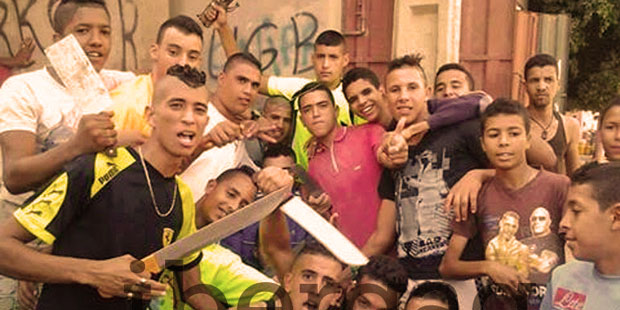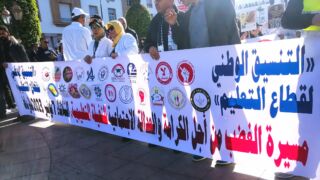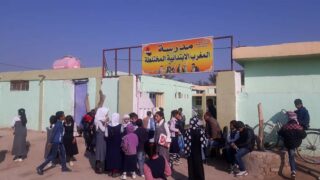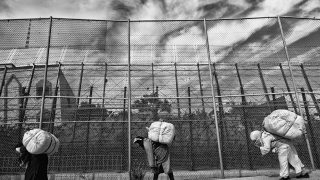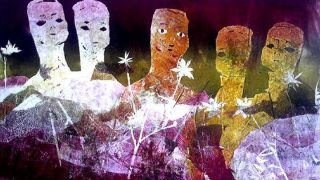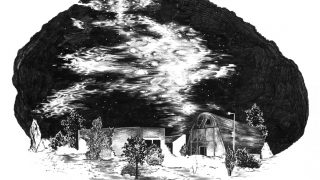It is the latest trend among Moroccan youth. They call themselves mesharmil, and they have been everywhere in the local press.
The word is a metaphor, borrowed from the world of the Moroccan kitchen, where sharmil is a marinade of spices, garlic, olive oil, and parsley. The more sharmil you sprinkle on your meat, the better it tastes.
Now, though, the word has been repurposed, applied to the realm of fashion and elegance: a mesharmil is someone who is elegant, wears upscale brands of clothing, sports shoes, luxury watches. His hairstyle duplicates Cristiano Ronaldo, or perhaps he even sports a fauxhawk.
Needless to say, the more 'sharmil' you sprinkle on your appearance, the more attractive you look to the young women or young men around you. A reflection of the society's obsession with appearances, of the rise of consumption and the mere act of buying as the mark of social success. If you are not a consumer, you are worthless, a nonentity.
And so it has become the preoccupation of young people living in the poor neighborhoods of Casablanca. A yen for elegance, a reaction no doubt to their dismissal as "Casa Trash." An entirely un-political social movement that has spread to every city in Morocco; its young exponents so obsessed with elegance that they will sometimes forgo eating in favor of their outfits. Dressed up, they post pictures of themselves on Facebook.
It was the hairstyles that first raised the ire of Moroccan conservatives. Soon after came the pictures of young men posing with huge knives, sabers, and even samurai swords, posted on social media sites.
As the trend got underway, there was a spike in crime rates in cities around the country, crimes that seemed to be committed to finance the expensive elegance of many of the young mesharmil.
A major police crackdown ensued, sending tens of thousands of young men to prison in many cities; those who imported or manufactured their swords were arrested too. Every day newspapers published arrest figures for young people rounded up in different locations, many in small, conservative provincial towns.
Mesharmil soon became synonymous with gangster [baltagi]; they shared in common not only a propensity to commit crimes, but to enjoyed boasting about them.
A social trend that extols laziness, that takes open pride in thieving: clearly this says a lot about the present situation in Morocco.
To provide political cover for the police crackdown, the Interior Ministry issued a press release on April 7, stating that King Mohammed VI had given special orders to beef up the presence of security forces throughout the kingdom. He wanted to restore order, and to ensure that citizens feel that their property is secure and protected. The police crackdown was a response, the Interior Ministry press release said, to "a surge in rioting inside and around sports stadiums, as well as the posting on social networks of photographs of people brandishing swords and displaying piles of cash they brag of having stolen; all of which led citizens to feel less and less secure."
The king's instructions elicited much supportive comment on social media sites. Prayers were said, asking for victory and success for the Commander of the Faithful. Praise for the king contrasted with open sarcasm toward the police, said to only do their job when they were explicitly ordered to do it. There were even insinuations that the police had known all along who the criminals were, since they were unnaturally quick to storm the precise sites where the swords were being manufactured, and to round up the convicts who were dealing in stolen goods.
The response to claims that the police had been sleeping on the job was still more rounds of arrests. The media now had a hot topic, plenty of material to report. There were endless pictures of prisoners, there were weapons, there were confessions. Ordinary people felt that the situation was improving, but still few dared to venture outside after ten at night, and the more cautious did not even linger on the street after eight. Buoyed by the media's enthusiastic endorsement of the zero tolerance method, the police felt entitled to start practicing journalism too, organizing press conferences in which police officers would pose the arrestees and their swords for photographers.
It has gone downhill from there. According to news website Code, judicial police in Casablanca showed off a young prisoner to the press, along with confiscated items including knives, sports clothing, cell phones, a watch and a motorcycle. A lawyer for the Moroccan Organization for Human Rights pointed out that "this conduct is against the law; first, a suspect is supposed to be innocent until proven guilty and second, since this took place during the preliminary police investigation, when no one, not even the defendant's own lawyer, is supposed to see the evidence. Only the public prosecutor is authorized to see the evidence at this stage, so that he can formulate any charges."
The human rights lawyer told Code that he was shocked that young people were being paraded around and condemned before even being put on trial. Filming suspects, he said, is a serious breach of the law. He described it as little more than an attempt by police to show that they are hard at work in the fight against crime.
The operation eventually expanded to rounding up grade school students, who were arrested and held for 48 hours. Not a single one had been armed when they were detained. They had been arrested for not carrying identity cards, or more specifically for having dubious hairstyles.
Mesharmil are generally not politically engaged, have been given an inferior education, and know perfectly well that they have no shot at a decent life. And so some of them decide to make a living on the strength of their muscles; not through work but through violence.
The crackdown finally reached its low point when the police chief in a town near Rabat ordered the long hair of a 25-year-old man cut off and publicly mocked him; the young man committed suicide soon after. The operation against the mesharmil had reached a turning point.
The Interior Ministry suspended the chief, pending an investigation. The youth's family refused to bury his body [demanding an autopsy]. So they were promised an unbiased investigation; the press spoke of "higher authorities," meaning the king, had decided to force the chief's father-an army general-into retirement. The chief himself was eventually removed by the interior ministry as well.
The image of this movement has been permanently damaged. From a badge of fashion and individual liberation, it has been transformed into something shameful. [...]The forces of order have strangled this youth movement. What can be next for youthful self-expression? How will they fill their days?
Translated from Arabic by International Boulevard

